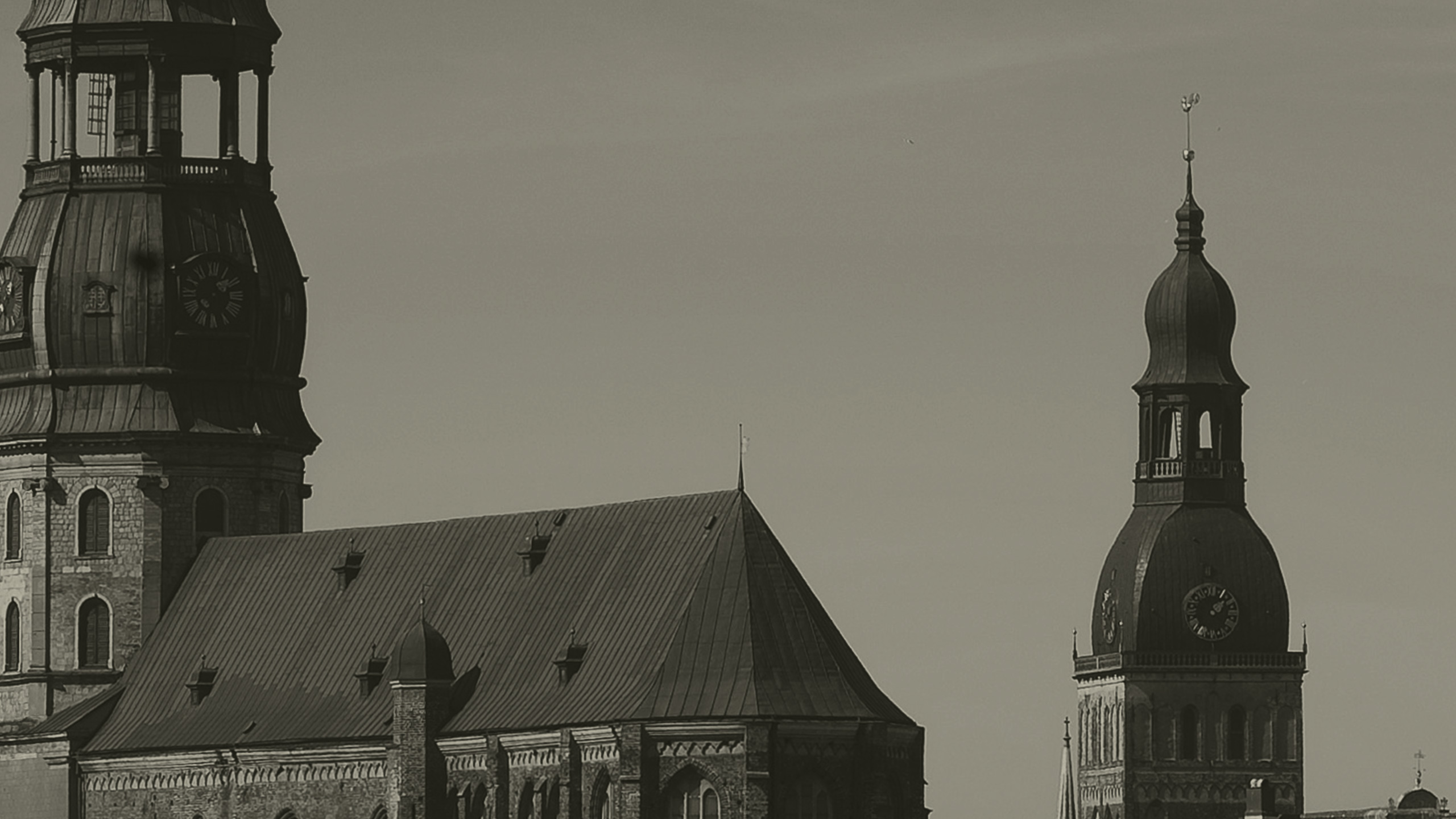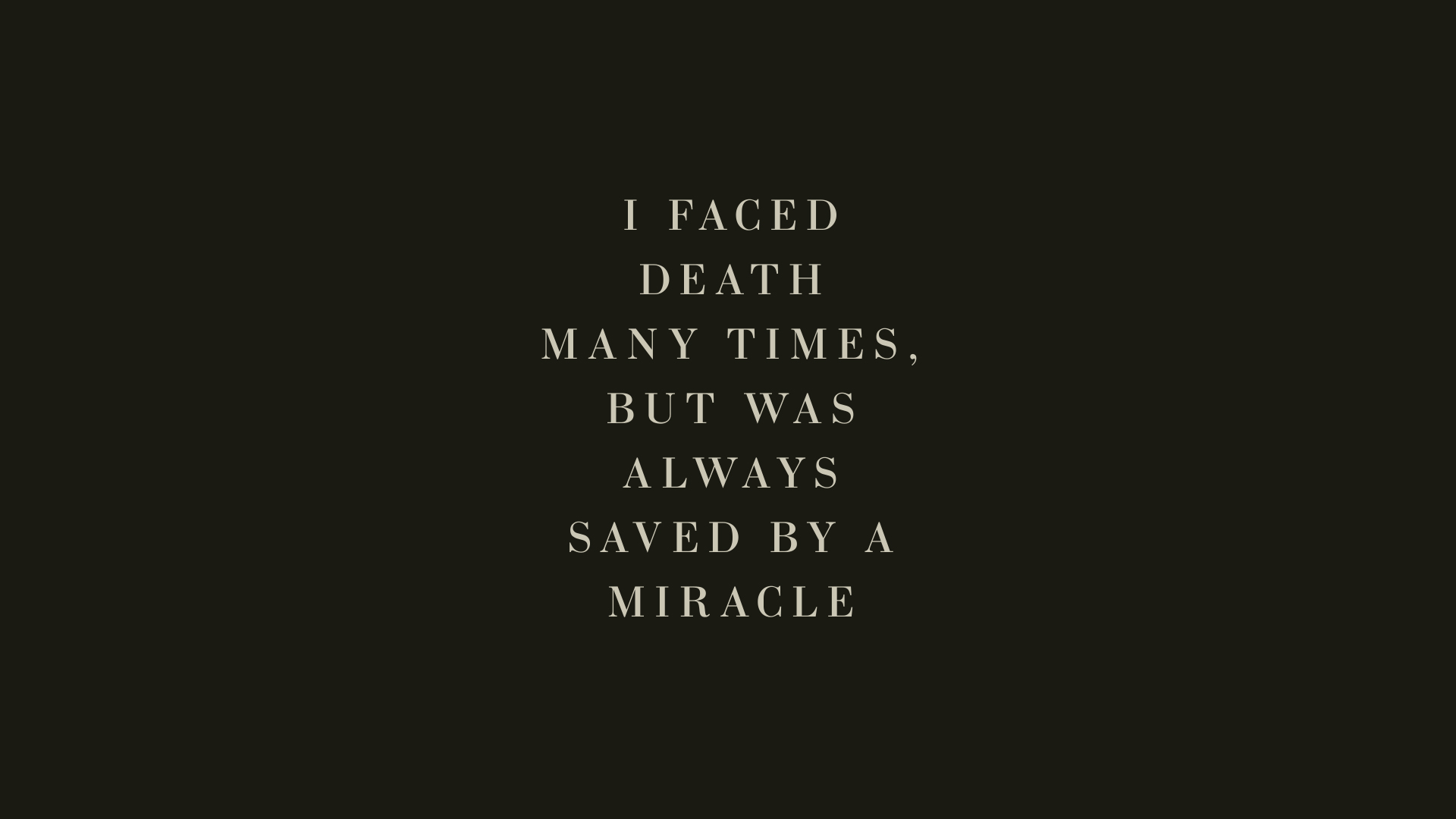
Alexander Bergman
Alexander grew up in a well-known family. His father, Žanis, was the headmaster of Riga Jewish Public School, a Jewish community leader and spoke 12 languages.

RIGA GHETTO
Even though it was strictly forbidden and punishable by death, Alexander attempted to smuggle an entire bag of food into the ghetto. As he approached the gate, he saw the sadistic Nazi Otto Tuchel on guard and immediately regretted his decision.
Tuchel spotted Alexander and with a wry smile said, “You’re shivering. Go to the Kommandantur so they can have a look at you.” Alexander walked the 15 paces to the Kommandantur as if they were the last steps he’d ever take.
Alexander stepped into the Kommandantur and was surprised to see his friend Saja had been summoned as well. Terrified, he whispered in Yiddish, “Saja, I have forbidden items in this bag.” Saja calmly replied, “Go into that foyer. Stand there for a few minutes and then come out as if you’ve already been searched.” Alexander did exactly what Saja suggested and it worked. Alexander couldn’t believe he made it out alive and would soon enjoy smuggled food with friends and family.
STÜTZPUNKT
As the Red Army advanced on Riga, the Germans started erasing traces of their war crimes in Latvia. Prisoners from Kaiserwald concentration camp were sent to Rumbula to dig up corpses and burn them. Its codename was Stützpunkt. Teams worked in Rumbula for a week at a time. At the end of week, they were shot.
During evening roll call, the Nazi who handpicked members for the following week’s Stützpunkt team approached Alexander’s line. He selected five men standing to Alexander’s immediate right and left.
Alexander avoided certain death again.
STUTTHOF EXTERMINATION CAMP
Alexander ended up in the sickbay with a 40°C fever. Although he recovered, he feigned illness in order to enjoy the comforts of the sickbay for another evening. This was a mistake.
He grew suspicious when he received two pieces of bread for dinner instead of the usual one. It turned out, the patients in the sickbay would not live to see the next morning, so they were giving them their breakfast now.
After dinner, the patients were taken outside and counted. The headcount was 32. The sickbay’s kapo checked the official register. It listed only 30 people. Alexander and another person were randomly pulled out of line and sent to their barracks. The rest were marched to the crematorium.
BUCHENWALD CONCENTRATION CAMP
On 16 January 1945, the RAF launched a massive aerial assault on Magdeburg. As soon as the air raid sirens started blaring, the camp guards herded the prisoners into a bomb shelter. The camp’s guards and staff joined them. Prisoners and Nazis sat together; this time they were both afraid for their lives.
As the Allied bombs shook the bomb shelter’s walls, Alexander wondered why the Germans were suddenly so concerned with the prisoner’s welfare. He then realized that if the guards left the prisoners unguarded during the air raid, they would surely escape. So now they were forced to cower in the bomb shelter together.
When they came out of the bomb shelter, Magdeburg had been obliterated.

Alexander was still alive.

